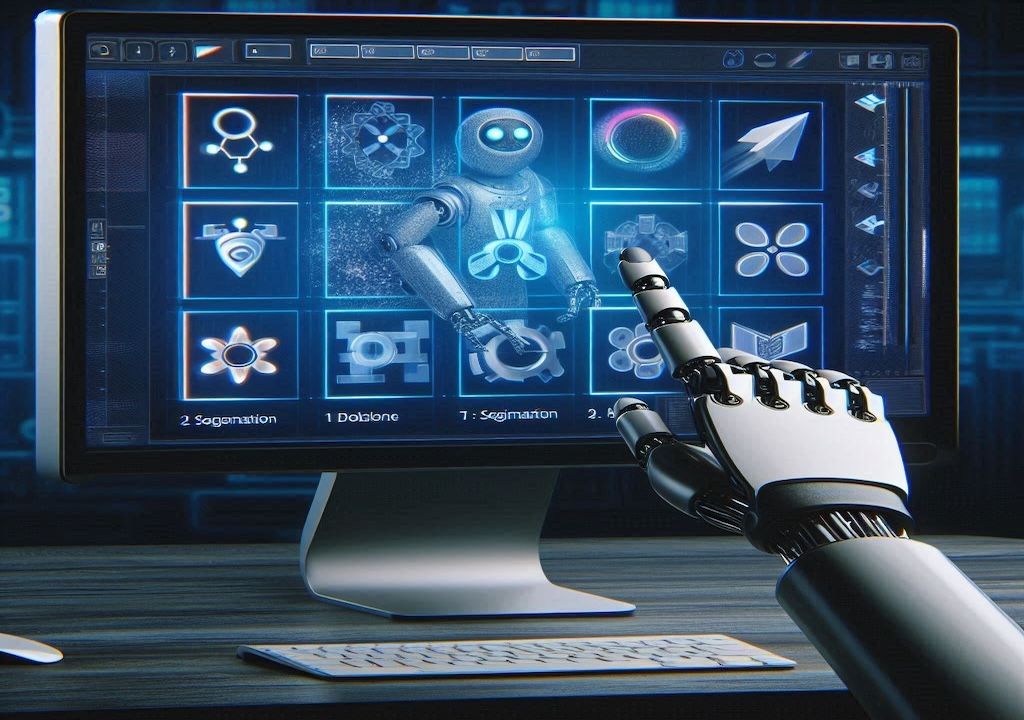Free Computer Vision Courses

Learn Computer Vision for Free & Get Completion Certificates
Computer vision is a branch of artificial intelligence and computer science that focuses on enabling machines to see, interpret, and understand visual data like humans do. It involves the development of algorithms and techniques that allow computers to extract meaningful information from digital images or videos. Computer vision has made remarkable advancements in recent years, revolutionizing various industries and opening doors to innovative applications.
The core objective of computer vision is to replicate human visual perception and cognition using computational models. It involves analyzing and processing visual data to extract relevant features, recognize objects and patterns, and make intelligent decisions based on the extracted information. This field combines principles from computer science, mathematics, statistics, and machine learning to tackle the complexities of visual data interpretation.
One of the fundamental tasks in computer vision is image classification, which involves assigning predefined labels or categories to images based on their content. This task enables machines to distinguish between objects, scenes, or specific visual patterns. Through the use of deep learning algorithms, computer vision models can achieve high accuracy in image classification tasks, even surpassing human performance in some cases.
Object detection is another crucial aspect of computer vision. It involves identifying and localizing multiple objects within an image or a video stream. Object detection allows computers to not only recognize objects but also precisely locate them, enabling a wide range of applications such as autonomous vehicles, surveillance systems, and augmented reality.
Furthermore, computer vision plays a significant role in image segmentation, which involves dividing an image into distinct regions based on semantic information. This task enables computers to understand and differentiate between different parts of an image, facilitating applications such as medical image analysis, video editing, and virtual reality.
Tracking is another important area within computer vision that focuses on following and monitoring the movement of objects in a video sequence. It involves associating objects across frames, estimating their trajectories, and predicting their future positions. Object tracking finds applications in surveillance, sports analysis, robotics, and more.
Computer vision also encompasses facial recognition, which involves identifying and verifying individuals based on their facial features. This technology has gained immense popularity and is widely used in areas such as biometric security systems, access control, and digital identity verification.
Beyond these fundamental tasks, computer vision has expanded into more advanced areas such as 3D reconstruction, image synthesis, scene understanding, and video analysis. It has found applications in diverse fields, including healthcare, automotive, retail, entertainment, agriculture, and manufacturing. For example, in healthcare, computer vision is used for medical image analysis, disease diagnosis, and surgical assistance. In the automotive industry, computer vision enables autonomous driving by recognizing traffic signs, pedestrians, and other vehicles.
Advancements in computer vision have been driven by the availability of large-scale annotated datasets, improved computational power, and breakthroughs in deep learning techniques. Convolutional Neural Networks (CNNs) have been particularly influential in revolutionizing computer vision, providing highly accurate and efficient models for image analysis.
In conclusion, computer vision is a rapidly evolving field that aims to replicate human visual perception using computational models. Through the development of algorithms and techniques, computers are becoming increasingly capable of understanding, analyzing, and interpreting visual data. The applications of computer vision are vast and varied, ranging from image classification and object detection to facial recognition and autonomous driving. As technology continues to advance, computer vision will play an even more significant role in shaping various industries and transforming the way we interact with visual information.
Frequently Asked Questions
How can I learn the Computer Vision course for free?
Great Learning offers free Computer Vision courses addressing basic to advanced concepts. Enroll in the course that suits your interest through the pool of courses and earn free Computer Vision certificates of course completion.
Can I learn about Computer Vision on my own?
With the support of online learning platforms, learning concepts on your own is now possible. Great Learning Academy is a platform that provides free Computer Vision courses where learners can learn at their own pace.
How long does it take to complete these Computer Vision courses?
These free Computer Vision courses offered by Great Learning Academy contain self-paced videos allowing learners to learn crucial concepts and gain in-demand computer vision skills at their convenience.
Will I have lifetime access to these Computer Vision courses with certificates?
Yes. You will have lifelong access to these free Computer Vision courses Great Learning Academy offers.
What are my next learning options after these Computer Vision courses?
You can enroll in Great Learning's highly-appreciated Artificial Intelligence Courses, which will help you gain advanced AIML skills in demand in industries. Complete the course to earn a certificate of course completion.
Is it worth learning Computer Vision?
Definitely! Computer Vision is highly worthwhile. It has diverse applications and offers excellent career prospects in technology and more. Learning it can give you a competitive edge and contribute to AI advancements.
Why is Computer Vision so popular?
Computer vision is popular due to its ability to enable machines to interpret visual data accurately. Advancements in deep learning, the availability of large datasets, and increasing demand for applications like facial recognition and augmented reality have further fueled its popularity. The field offers exciting opportunities and is at the forefront of technological advancements.
Will I get certificates after completing these free Computer Vision courses?
You will be awarded free Computer Vision certificates after completion of your enrolled Computer Vision free courses.
What knowledge and skills will I gain upon completing these free Computer Vision courses?
You will gain knowledge in image processing, object recognition, and deep learning techniques after completing free Computer Vision courses. You will acquire practical skills in implementing tasks like image classification and object detection, enhancing your ability to work on real-world projects.
How much do these Computer Vision courses cost?
These Computer Vision courses are provided by Great Learning Academy for free, allowing any learner to learn crucial concepts for free.
Who are eligible to take these free Computer Vision courses?
Learners, from freshers to working professionals who wish to learn about computer vision and upskill, can enroll in these free Computer Vision courses and earn certificates of course completion.
What are the steps to enroll in these free Computer Vision courses?
Choose the free Computer Vision courses you are looking for and click on the "Enroll Now" button to start your learning experience.
Why take Computer Vision courses from Great Learning Academy?
Great Learning Academy is the proactive initiative by Great Learning, the leading e-Learning platform, to offer free industry-relevant courses. Free Computer Vision courses include courses ranging from beginner to advanced level to help learners choose the best fit for them.
What jobs demand you learn Computer Vision?
Jobs that demand knowledge of computer vision include:
- Computer Vision Engineer
- Machine Learning Engineer
- Research Scientist in Computer Vision
- Robotics Engineer
- Autonomous Vehicle Engineer
- Image Processing Engineer
- AI Software Developer



























